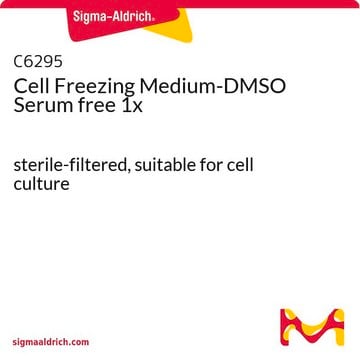Fontos dokumentumok
I1659
Anti-IFI-16 antibody, Mouse monoclonal
~1 mg/mL, clone IFI-230, purified from hybridoma cell culture
Szinonimák:
Anti-Interferon-inducible 16
About This Item
ELISA (i)
ICC
IP
WB
immunoprecipitation (IP): suitable
indirect ELISA: suitable
microarray: suitable
western blot: 0.5-1 μg/mL using whole extract of the Jurkat cell line
Javasolt termékek
biológiai forrás
mouse
Minőségi szint
konjugátum
unconjugated
antitest forma
purified from hybridoma cell culture
antitest terméktípus
primary antibodies
klón
IFI-230, monoclonal
Forma
buffered aqueous solution
molekulatömeg
antigen 85-95 kDa (cluster of three isotypes A, B, and C)
faj reaktivitás
human
koncentráció
~1 mg/mL
technika/technikák
immunocytochemistry: suitable
immunoprecipitation (IP): suitable
indirect ELISA: suitable
microarray: suitable
western blot: 0.5-1 μg/mL using whole extract of the Jurkat cell line
UniProt elérési szám
kiszállítva
dry ice
tárolási hőmérséklet
−20°C
célzott transzláció utáni módosítás
unmodified
Géninformáció
human ... IFI16(3428)
Related Categories
Általános leírás
Immunogén
Biokémiai/fiziológiai hatások
Fizikai forma
Jogi nyilatkozat
Nem találja a megfelelő terméket?
Próbálja ki a Termékválasztó eszköz. eszközt
Tárolási osztály kódja
10 - Combustible liquids
Lobbanási pont (F)
Not applicable
Lobbanási pont (C)
Not applicable
Válasszon a legfrissebb verziók közül:
Analitikai tanúsítványok (COA)
Nem találja a megfelelő verziót?
Ha egy adott verzióra van szüksége, a tétel- vagy cikkszám alapján rákereshet egy adott tanúsítványra.
Már rendelkezik ezzel a termékkel?
Az Ön által nemrégiben megvásárolt termékekre vonatkozó dokumentumokat a Dokumentumtárban találja.
Tudóscsoportunk valamennyi kutatási területen rendelkezik tapasztalattal, beleértve az élettudományt, az anyagtudományt, a kémiai szintézist, a kromatográfiát, az analitikát és még sok más területet.
Lépjen kapcsolatba a szaktanácsadással








